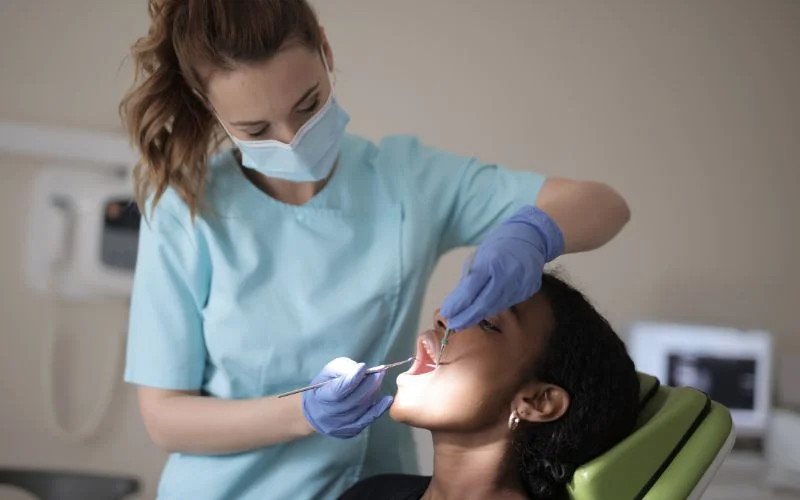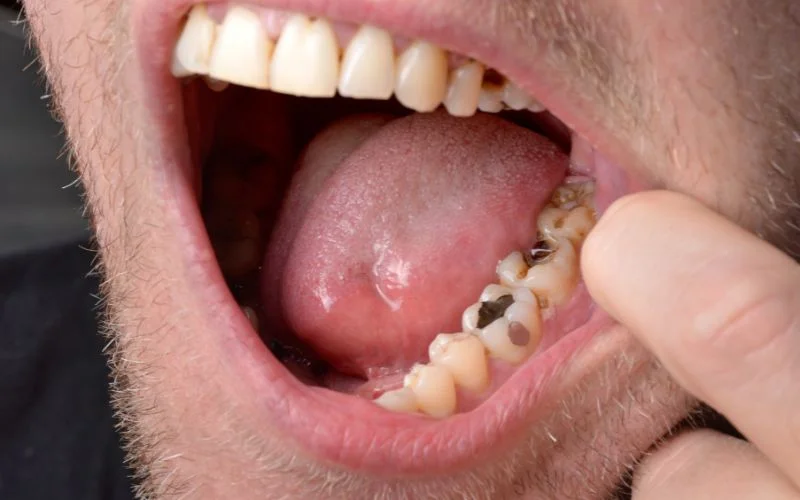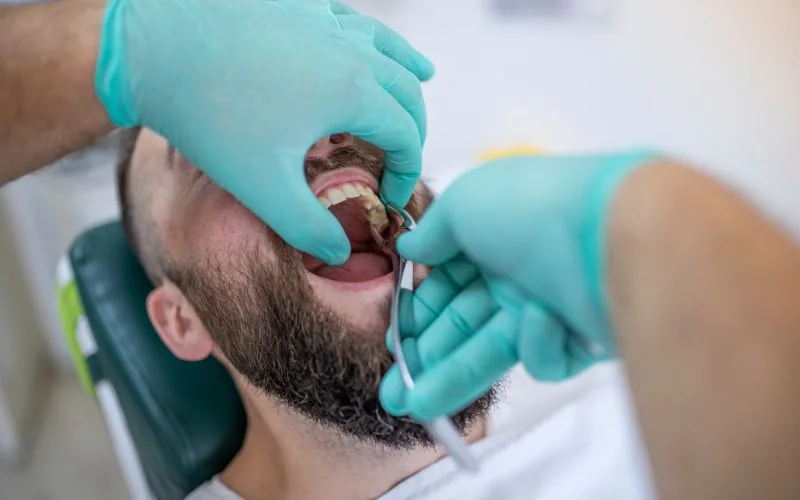



















Tooth Extraction In Turkey: Cost, Reviews, and Treatment Abroad
Considering a tooth extraction in Turkey? Learn about affordable costs, patient reviews, and top-quality treatment options abroad. Discover why Turkey is a trusted destination for dental care and speedy recovery.

Worried about Pain and Recovery After Tooth Extraction? Here's How We Make It Easier
Are you concerned about pain and recovery after a tooth extraction? You aren’t alone. Although the procedure causes many individuals great anxiety, at Avangart, we ensure a pain-free experience. Modern methods and individualized treatment help us to guarantee that your surgery causes as little pain as possible both during and after it. From advanced anesthetic options to expert aftercare recommendations, our specialists offer complete coverage at every stage of tooth extraction procedures. We make certain you feel better faster, regardless of its complexity or any subsequent discomfort experienced during recovery.
When is tooth extraction necessary, and when can you manage without it?
Tooth extraction is sometimes inevitable, but not always. If a tooth is severely infected (e.g., an abscess) or extensively damaged, such as broken teeth (e.g., beyond the point where alternative therapies, such as a root canal Turkey or Dental Crowns Turkey, may not work), immediate extraction may be necessary. These circumstances can rapidly compromise your general health, so the tooth needs to be removed.
Planned extractions take place when the issue requires correction, even if it isn’t as urgent. This includes teeth with roots too damaged for dental implantation, teeth that have become loose because of gum disease, or teeth with strange forms causing oral discomfort or injury. Sometimes, teeth just cannot be restored because they are too far gone or are damaging the adjacent teeth and may require oral surgery.
There may be times when it would be best to wait before having an extraction performed. It is usually best to wait if you are pregnant, have a significant illness (such as a heart issue or blood disorder), or have an infection. Baby teeth should also not be taken out until the X-ray shows that permanent teeth are ready to erupt.

Front teeth extraction
The incisors, or front teeth, are very important for biting food and for the appearance of your smile. Extraction of a front tooth is only done when it is absolutely necessary, as appearance and eating depend on them. Before selecting how to remove a tooth, dentists will carefully evaluate the roots and surrounding bone.
For the upper front teeth—which have cone-shaped roots—the dentist will gently rotate it to free and extract the tooth. Because their roots are thin and straight, extracting lower front teeth might be somewhat difficult. To extract the tooth safely, the dentist will tilt it forward toward the lip and then back toward the tongue.
If you do need a front tooth extracted, don’t be too worried. Modern dentistry offers many wonderful options to make your smile whole again. You can avoid any inconvenience caused by a gap by obtaining a temporary tooth replacement while your permanent one is being manufactured. The affected area should heal completely in one to two weeks; your dentist will advise you on how to care for it throughout the healing.
Wisdom teeth extraction
Usually coming in during your late teens or early twenties, wisdom teeth—also known as third molars—are the last teeth in your dental row. Interestingly, almost eight percent of individuals never develop them at all. Wisdom teeth, unlike other teeth, come in after your jaw is completely matured, which might lead to problems as they lack a baby tooth before them.
These teeth can be rather problematic as they arise from mature bone tissue and lack a neighboring tooth on one side. Many individuals find wisdom teeth extraction necessary as they often develop at strange angles or fail to erupt completely. The operation is popular in Turkey, where dentists possess the necessary expertise to deal with these challenging teeth.

Adjacent teeth extraction
Wisdom teeth don’t always grow straight, so they create problems rather frequently. They sometimes sit outside the usual line of teeth or at an angle. Because of this, food may get wedged between the wisdom teeth and the neighboring molar, making it difficult to clean thoroughly.
When this happens, the molar as well as the wisdom teeth might begin to deteriorate. Many times, this severe decay renders saving the wisdom tooth very difficult. Eliminating it and maybe the impacted neighboring molar becomes the ideal way to preserve your general dental health and stop any more damage.
How Much Does Tooth Extraction Cost in Turkey?
Turkey often provides more cost-effective dental procedures, so many opt to have their procedures performed there. A simple extraction will often cost between £100 and £200 on average. The complexity of the operation will, however, affect the price. Eliminating wisdom teeth or an impacted tooth, for instance, could cost a little extra as the procedure is more difficult.
No matter these variations, dental treatment in Turkey remains cost-effective and high-quality, making it a fantastic way to save money without compromising treatment quality. Opting for a private dentist may result in higher costs, but it can offer shorter waiting times and personalized care.
Types of Tooth Extractions: What You Need to Know
Simple Extraction
The easiest kind of tooth extraction is a basic one. It’s used when the tooth is easily reachable and fully visible in your mouth. Using a special instrument called an elevator, the dentist loosens the tooth; then, carefully takes it out with forceps. This operation is short and often does not need surgery because the tooth is already in place and not lodged beneath the gums. Local anesthetic is used to ensure that you do not experience any pain, and recovery is usually quick with minimum discomfort.
Surgical Extraction
Surgery extractions often involve oral surgery and can be required when teeth are inaccessible for simple extractions, for instance, when they are broken at the gum line or have not fully emerged – impacted wisdom teeth. A dentist or oral surgeon makes a small incision on gum tissues in order to access and extract the target tooth; sometimes, a tooth must be broken into pieces so it can be extracted more effectively; local anesthesia (and sometimes sedation) will make sure you feel no pain throughout this lengthy procedure.
The Tooth Extraction Procedure
Simple Extraction procedure:
- To make the region around the tooth painless, the dentist will inject a local anesthetic;
- The tooth is softly loosened using an elevator tool;
- The tooth is extracted carefully.
- The empty socket is then filled with gauze to halt the bleeding.
The process for a surgical extraction differs somewhat:
- Depending on the situation, you may be given a combination of sedation and local anesthetic or general anesthesia.
- The dentist cuts the gum to reveal the tooth and bone;
- To facilitate removal, the tooth might be sectioned into smaller pieces;
- The location is meticulously cleaned;
- The gum may be sutured depending on the incision depth and size.
Tooth Extraction Aftercare: Tips for a Quick & Safe Recovery
- Rest and take it easy: Steer clear of intense exercise for at least twenty-four hours so your body has time to repair;
- Keep the gauze in position: To help in building a blood clot and halt the bleeding, gently bite down on the gauze for thirty to forty-five minutes;
- Employ ice packs: To lower swelling and dull any discomfort, apply an ice pack to your cheek ten to fifteen minutes in intervals.
- Refrain from spitting and rinsing: For 24 hours, don’t rinse or spit to avoid dislodging the blood clot and delaying healing;
- Eat soft foods: For the first day or two stick to soups, yogurt, and other soft meals; stay away from straws to prevent dry socket.
The healing process is crucial for a successful recovery and can vary based on individual health and adherence to aftercare instructions.


